Africa/Kenya/31-05-2020/Author: Margaret Kalekye/Source: www.kbc.co.ke
The Ministry of Education has cautioned against the rush to reopen schools during this coronavirus pandemic.
Education Cabinet Secretary Friday hinted at pushing again the reopening of schools considering the rising number of coronavirus infections. Kenya has 1,618 cases, with 147 reported Thursday.
“You have seen the numbers this week and last week. Who would take their child to school? Let us agree that a child who is alive and well at home is better than a child who attempts an exam and dies there. If it means learners starting the year again so be it,” said the CS.
While speaking after receiving an interim report of the Covid-19 National Education Response Education committee, the CS maintained that the health and safety of learners and teachers remains a priority and not national exams.
Magoha says their primary focus is to come up with strong mitigation measures that will be required in schools once they reopen based on recommendations of the committee and health ministry.
Magoha will be tabling the proposals contained in the report before the national emergency response committee this weekend for further consultations.
” The Ministry recognises that the process of reopening schools will not be a switch-on-switch-off affair, but a rather carefully thought out and methodical process that must guarantee safety and health of all learners, teachers and staff”.
He said his office will be giving updates on the current situation regarding the education sector based on the advice of the Ministry of Health.
While citing the southern US which has reported an upsurge of cases after reopening the economy, Magoha said no number of deaths is comfortable and appealed for calm as the government monitors the situation.
The ministry had set June 4 as the tentative opening date, pending the advice of the committee and the Ministry of Health.
Magoha clarified that the goal of the nine-member committee set up last month to advise the government on the school calendar is the safety of learners.
“We have done various simulations. Let us remain sober and take into account the fact that there are places that have rushed to reopen and are dealing with an upsurge. Nobody knows what will happen tomorrow. This not a Kenyan problem. We have seen what is happening in the world to learn from. Which is the comfortable number of deaths and the answer is zero” he posed.
He added “The goal of this committee is not about closing or reopening schools the goal was to ensure the children are safe. Their sole determination will remain on what is happening here and the Ministry of health”
Magoha took a swipe at parents for treating children as a burden. He reminded parents of their shared responsibility with schools to ensure children continue to learn.
“It is should be clear for all and sundry. This disease is here to stay, but for now, all stakeholders must be prepared. The abrogation of responsibility by parents must be revised. There is a lot to learn in life apart from mathematics. It must start with the family. It’s an opportune time to strengthen parenting” he said.
He assured that the school calendar will apply to all learners equally regardless of their statuses.
“From Mukuru to Muthaiga learners will have the same facilities and the same rights. The issue of transition and mega issue of CBC must go hand in hand”.
On the stand-off between parents and private schools, the CS called for negotiations bearing in mind that the schools need money to run or they will be forced to shut which is unfair.
“Private schools employs over 160,000 teachers. To keep the schools alive, we must have a humane face. Let us be reasonable the staff must be paid. If they collapse it is the government that will deal with the burden because the children will come to public schools”.
Source and Image: https://www.kbc.co.ke/our-focus-is-not-on-reopening-of-schools-says-cs-magoha/
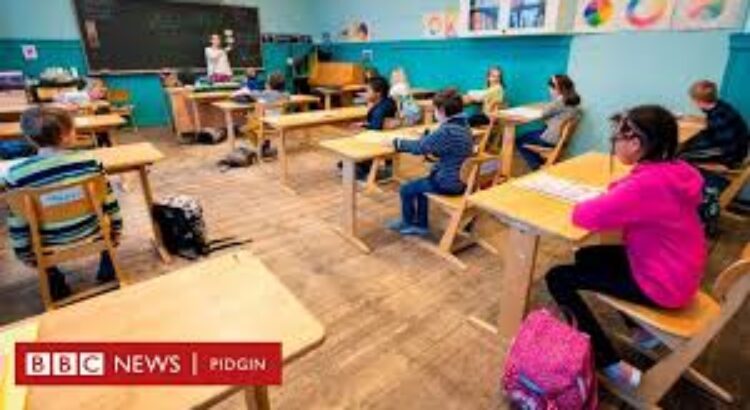
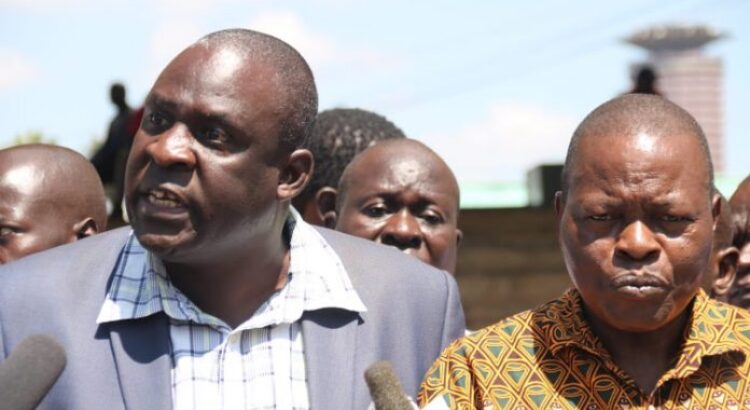
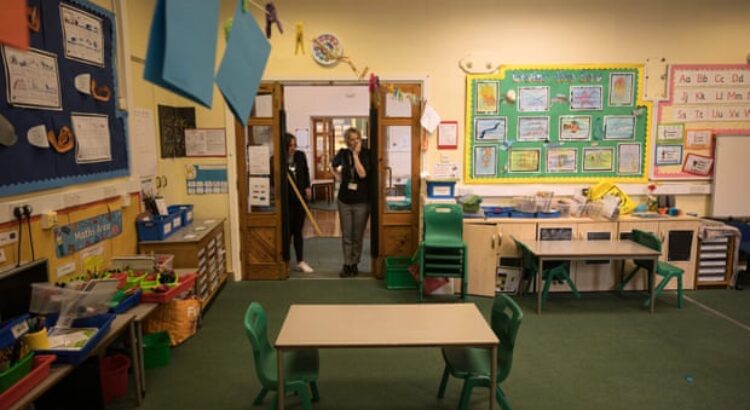
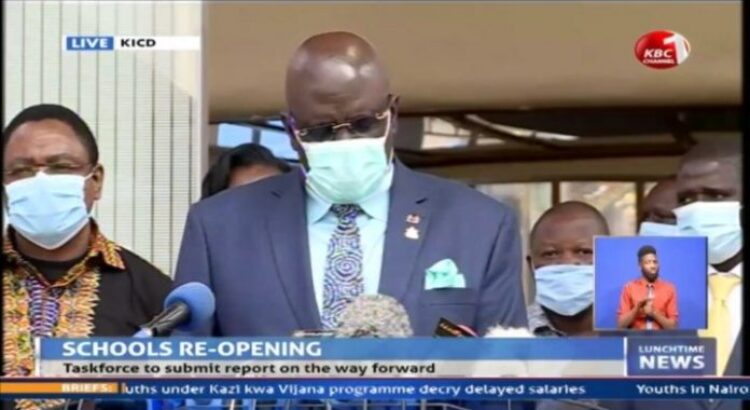
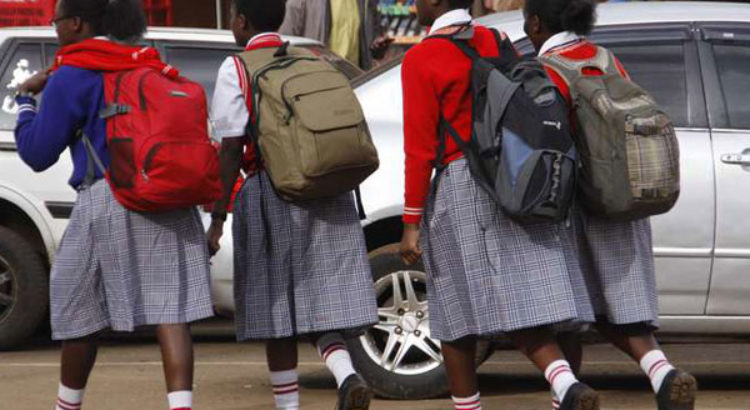
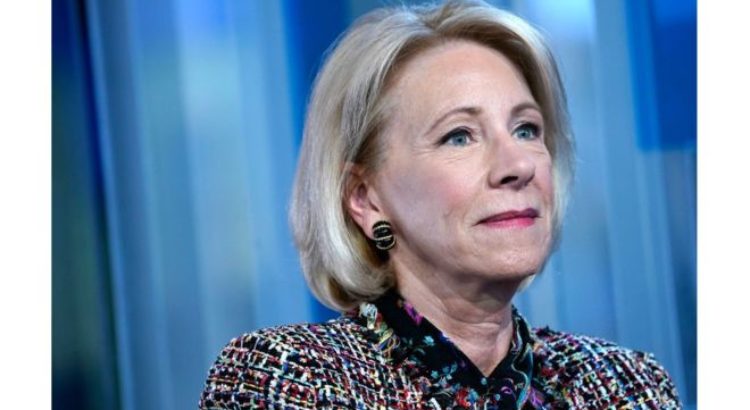
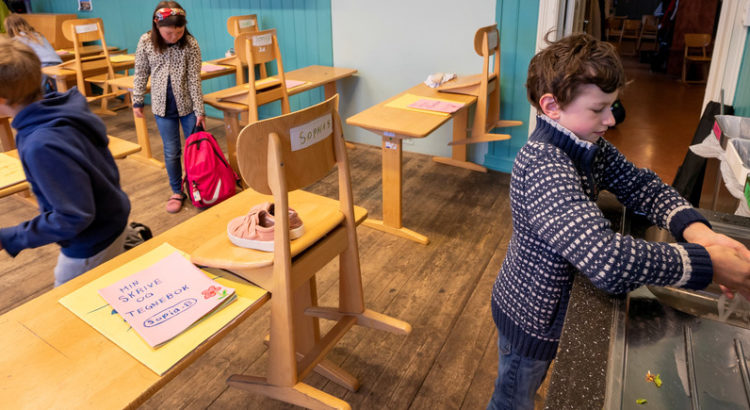














 Users Today : 7
Users Today : 7 Total Users : 35460270
Total Users : 35460270 Views Today : 8
Views Today : 8 Total views : 3418976
Total views : 3418976